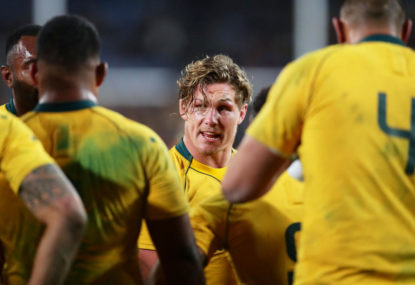Wales’ 24-22 win over South Africa over the weekend highlights not only the continued decline of South Africa as a world rugby superpower but underlines the biggest problem facing the game – one that shows no sign of being solved in the foreseeable future.
Rugby is hell-bent on choking itself to death through overuse.
In March this year World Rugby announced a new global calendar which – after years of negotiations between national unions, club competitions and players associations – amounted to a modest re-alignment to define a mid-year window in which international rugby can be played free from club commitments.
The outcome provides for a month’s gap following the completion of the English Premiership and the French Top 14, notionally to provide club players with a definite off-season and national coaches time to prepare their sides properly for their Southern Hemisphere international programs.
The reaction of Premiership Rugby to this was instructive. Chief executive Mark McCafferty immediately announced he would look at extending the Premiership to take advantage of the free dates, a possibility that is currently being considered by England’s professional game board.
There are other windows where Test rugby takes precedence – in November to allow inbound tours from the Southern Hemisphere nations and in February and March, when the Six Nations takes place. In both cases, Northern Hemisphere club rugby continues through these windows.
The upshot is that players in the Northern Hemisphere, in particular, are faced with seasons that are interminably long and that provide very little opportunity for physical and mental respite.

(Photo: AP)
McCafferty insists that Premiership Rugby will work with the players union to ensure that there are more weekends off during the season, but this sop to players conveniently ignores research that demonstrates that rather than a week here and there, athletes need a complete offseason break to sufficiently restore tired and damaged bodies in order to allow them to compete again at optimal levels in future seasons.
It also ignores the notion that players need to ‘escape the bubble’ for a sufficient period to allow them to relax with family and friends and mentally recharge before the grind of a new season begins.
As it stands at present a short offseason doesn’t allow players to rest sufficiently, and most of them will keep training to ensure that they are in top shape when they resume in case they risk losing their spot. This madness is akin to an office worker taking annual leave but being required to submit a detailed, completed business plan on the morning they arrive back at work – essentially requiring them to keep working while on leave.
The problem is not confined to the Northern Hemisphere. The Pumas limped to the end of another disappointing Test program, losing 28-19 last week to Ireland, the vast majority of their players living in each other’s pockets for 11 months as Jaguares or Pumas.
Even if they are not heartily sick of the sight of each other the staleness that has become a feature of their rugby can certainly be put down to this factor.
The Wallabies season tapered off badly, with a record 53-24 loss at the hands of Scotland. It is not being wise after the event to point to warnings I posted at the time of a meaningless Barbarians fixture in Sydney in October, when the squad – and most definitely the coach – should have been enjoying a few days at home, freshening up for their end of year tour.
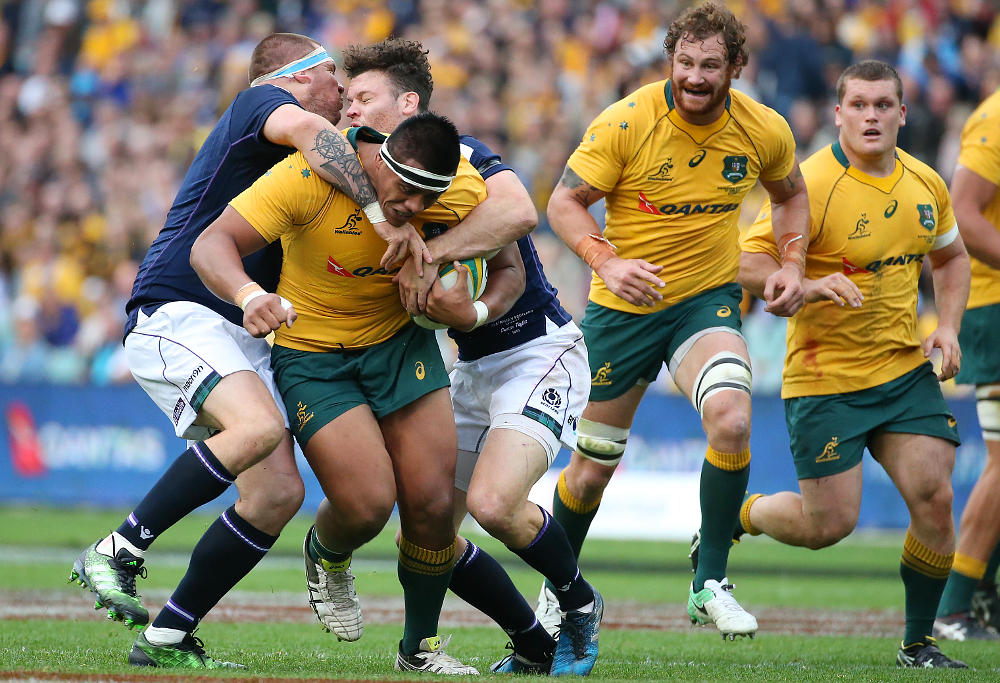
(AAP Image/David Moir)
In recent years New Zealand has struggled with player fatigue compromising their end-of-year tours but, conscious of repeating past mistakes, they fared better this season. The cost of doing so was the use of an astonishing 55 players wearing the All Blacks silver fern this year in what many would say is a cheapening of rugby’s most iconic jumper.
To understand why this is happening isn’t difficult. By definition professional sport requires money. Money flows overwhelmingly from broadcast rights, and the broadcasters, seeking to maximise their investment from a position of strength, negotiate increased content.
It is the size of the rugby audience concentrated in the UK and France that underpins the value of those broadcast rights, which works its way back into the game in the form of commensurately higher player salaries.
Clubs in England and France, determined not to fall behind, eagerly accept whatever revenue flows their way, most of them electing to use that money to buy more and better players in the hope of winning their respective leagues or, at the other end of the scale, avoiding relegation. Those players increasingly come from the Southern Hemisphere nations.
If there are clubs knocking on the door of the rights holders – BT Sport in the UK and Canal+ in France – to implore them to allow a shorter season without reducing their financial commitment, they are yet to make themselves public.
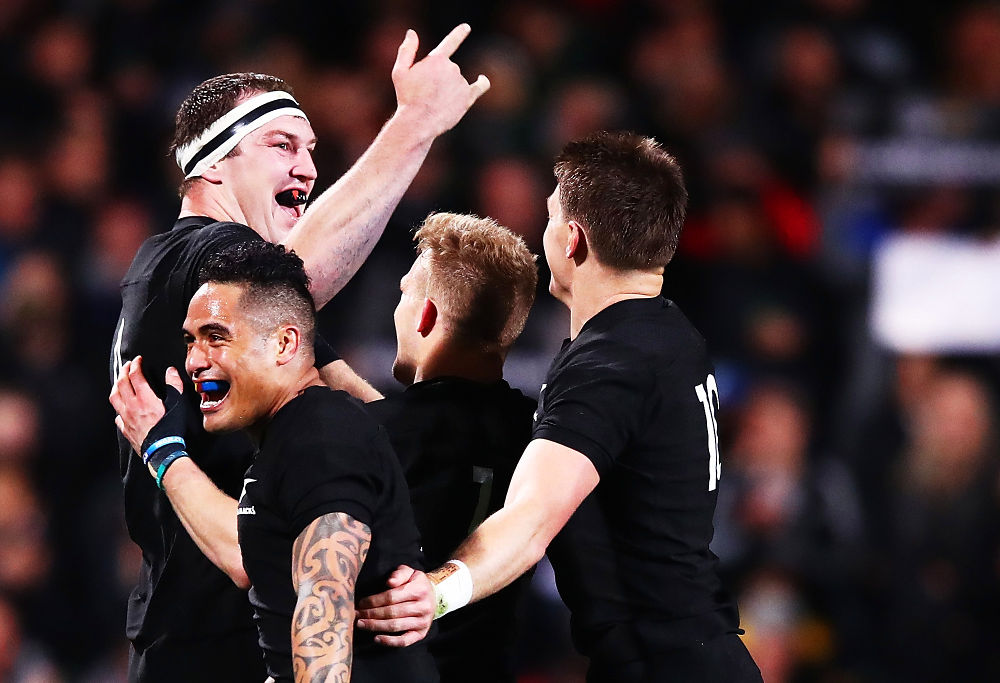
(Photo: Hannah Peters/Getty Images)
With a significantly smaller and more fragmented market, the Southern Hemisphere unions – formed into SANZAAR essentially as a ‘together we are stronger’ mechanism – are limited in the ways and means they have to keep their best players at home.
The national unions have to find ‘big money’ from somewhere, and so it is that they present their national teams at every opportunity as a defence mechanism against the financial might have the Northern Hemisphere clubs.
Earlier this year New Zealand Rugby chief executive Steve Tew admitted to me that 15 Tests per year was too many, but “if we didn’t do it, we’ll go broke”.
Unlike South Africa, New Zealand – at least this year – didn’t subject their players to an extra week extending into December. They folded their Barbarians fixture into the ‘normal’ schedule – if indeed playing 15 Test matches per year can be considered normal.
At a future point look for the leaders of Welsh and South African rugby to remind us about how concerns for player welfare are at the forefront of their thinking and planning. But judge them instead by their actions – this weekend forging ahead regardless to squeeze in an extra match outside of the agreed international window solely to boost their cash reserves.
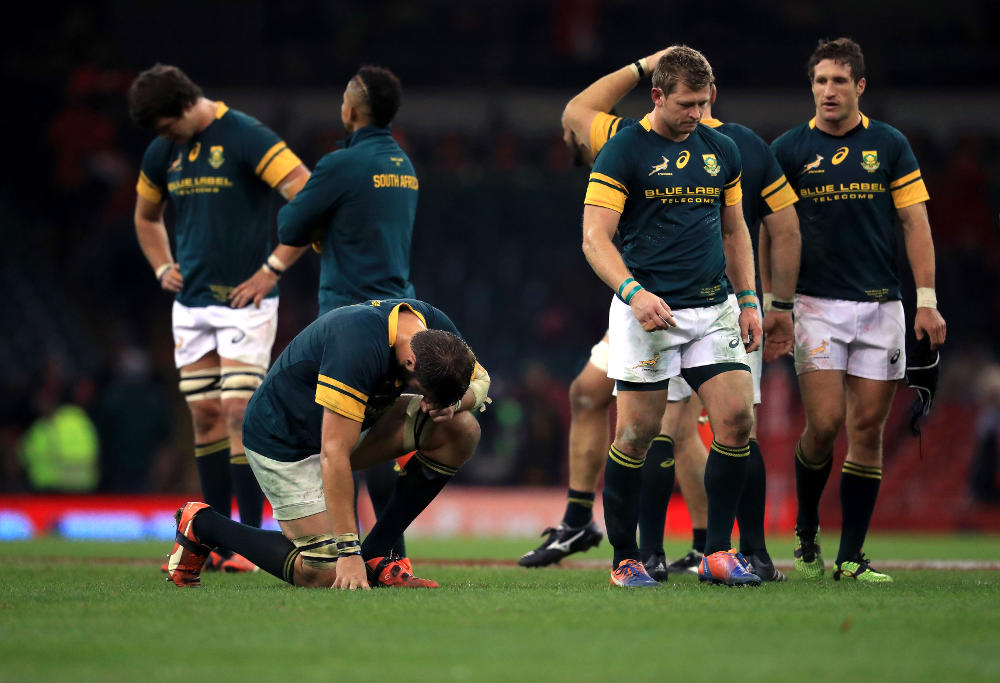
(Mike Egerton/PA via AP)
While rugby continues to pile on more ‘content’, two of the most successful sports leagues in the world operate far differently. The NFL season runs for five months, with 16 regular season matches and a maximum of 20 matches for the Super Bowl finalists.
In the AFL players enjoy a definite four-month break from playing, helping to ensure that high playing standards are maintained when they do.
Both are domestic sports, an advantage in that complexity around management and operation of the game is lessened – but on the other hand, isn’t rugby always keen to spruik about how its genuine international status, with 121 member countries, is a defining strength of the game?
The AFL has been clever in how it has found a way to give its players a decent rest while maintaining an almost indecently high media profile over the offseason, due in part to the construct of a national women’s competition. Never mind that the standard currently ranges between serviceable and woeful; it is content that a compliant media and fan base is grateful for.
Ironically rugby did and still does have a similar solution, with the international rugby sevens an entertaining offseason solution for fans desperate for any kind of rugby fix, using male and female players outside of regular professional 15-a-side clubs.
But instead of being allowed a window and a focus of their own, sevens now runs concurrently with professional 15-a-side rugby and in doing so has become just another element clogging the rugby calendar.
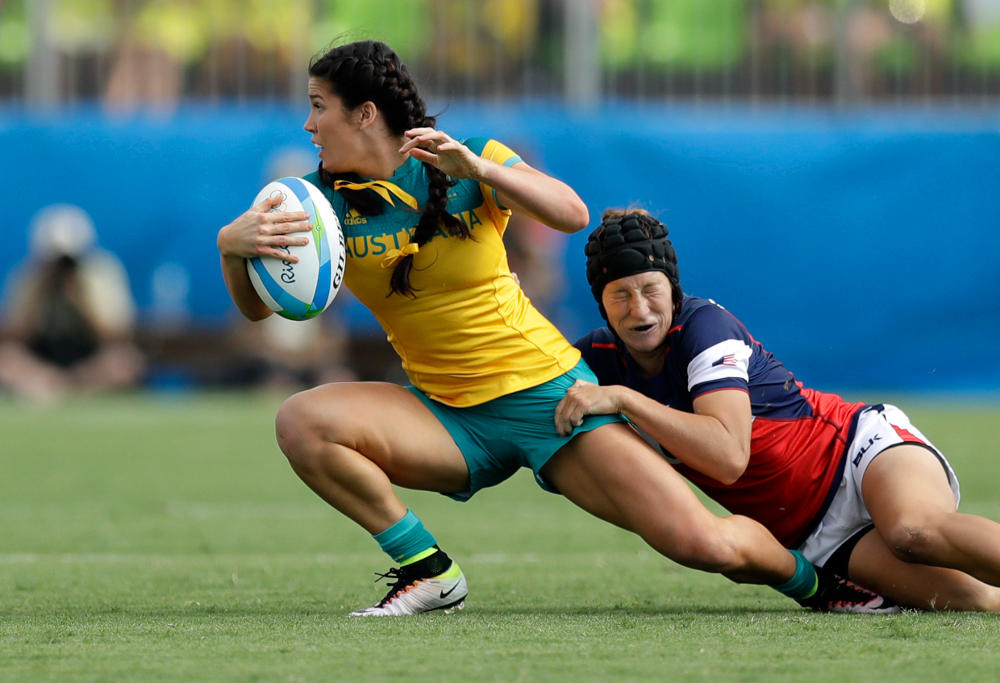
(AP Photo/Themba Hadebe)
In the professional era, rugby has so far proven itself incapable of understanding or adopting the mantra that ‘less is more’. But how is it that tensions can be resolved?
Clubs will only grumble for so long about having to pay the wages of players absent on international duty, some of whom return to the club injured.
National unions will only accept for so long the primacy of the international game being trampled upon by overly ambitious, ego-driven club owners.
Players will only accept for so long that they must continue to perform as circus animals, with inadequate offseasons that serve to diminish their enjoyment of the game and potentially shorten their careers.
Since McCafferty’s brazen notice of intent to increase the length of the Premiership season, talk of a potential players strike has been bandied about. But if it ever did come to that, put your money on the players achieving nothing other than learning who really holds the aces.
The players union in New Zealand has a close and constructive relationship with the New Zealand Rugby Union and player outcomes are considered to be superior to those in the UK and Australia, where the quality and effectiveness of player advocacy has been questioned.
This week most Super Rugby squads return to full training, minus their international players involved in the Northern Hemisphere tours. While those players are subject to a mandatory stand-down period, many will be feeling anxious that they are not with their teammates and their coaches, helping them prepare for Round 1, beginning on February 18.
It is the way of professional rugby that, because there is too much of it in all of its guises, everything becomes compromised. Instead, it is compromise that is required – a circuit breaker that will result in the game being treated as one whole piece, not an arena for clubs and unions to compete with each other for money and control.
Don’t hold your breath waiting for that change – as necessary as it is – to come anytime soon.





























































































